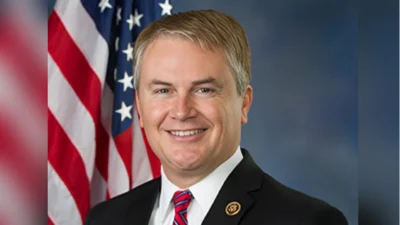WASHINGTON, D.C. - Income Security and Family Support Subcommittee Chairman Jim McDermott (D-WA), delivered the following statement today at a Ways and Means Subcommittee hearing examining the solvency of the unemployment insurance system:
“At this moment, 34 States require loans from the Federal government to pay regular unemployment benefits - the most during any time since the UI system was created in 1935. We are here today to examine how we got to this point and where we should go from here.
“There can be no doubt that the severity of the recession that started in December of 2007 is a driving force in depleting the State’s unemployment trust funds. In short, higher unemployment means more people need benefits, and that means more money has to be drawn from the trust funds.
“But that is only part of the story.
“As we will hear today from the GAO, too many States were woefully ill-prepared to weather even a mild recession. Many State UI trust funds had very low reserve levels prior to the start of the recession, so they had very little cushion to rely on as the need for benefits climbed. Some of these States ignored one of the basic rules of any insurance program, which is to save money in good times to pay out more during hard times.
“The GAO informs us the decline in the solvency of the UI system is all about revenue.
“States’ effective tax rates to support UI have declined over time, while the unemployment benefits they’ve paid out have stayed flat relative to wages. This means the weekly UI benefits available today replace no more of a worker’s wages than in the past, but the unemployment system they depend on is much less solvent.
“Reduced solvency forces States to raise taxes at the worst possible time -- during a recession or shortly thereafter. It also creates pressure to cut back on benefits that are already too low to replace even half a worker’s prior wages. To avoid this same pitfall in the future, we ultimately need to return to a system that is forward-funded.
“The question that will increasingly confront Congress is whether we can help States suffering from huge deficits in their UI funds, while also encouraging them to take the steps necessary to ensure a strong and solvent unemployment insurance system in the future. I think the answer is yes, and hopefully today’s testimony will provide a roadmap to help us get there.
“Before I finish my remarks, I want to say a few words about the labor market. Before this Congress and President Obama enacted the Recovery Act, our economy was hemorrhaging jobs at the rate of over 750,000 a month.
“In March of this year, our economy gained more than 160,000 jobs. This is the first significant increase in more than three years. Hopefully tomorrow’s employment report will show that trend continuing. This progress shows we have stopped the economic free-fall that started under President Bush. But eight years of failed economic policy has left us with an enormous hole to climb out of.
“Since the beginning of the recession, we have lost over eight million jobs, when we needed to create nearly three million just to keep pace with population growth. Restoring these lost jobs will take time - we are talking years, not months.
“This underscores the importance of maintaining a strong unemployment insurance system. It also means we need to look for additional ways to help long-term unemployed workers, and I expect future hearings to focus on that topic.
“I now yield to the subcommittee’s ranking member, Mr. Linder."







